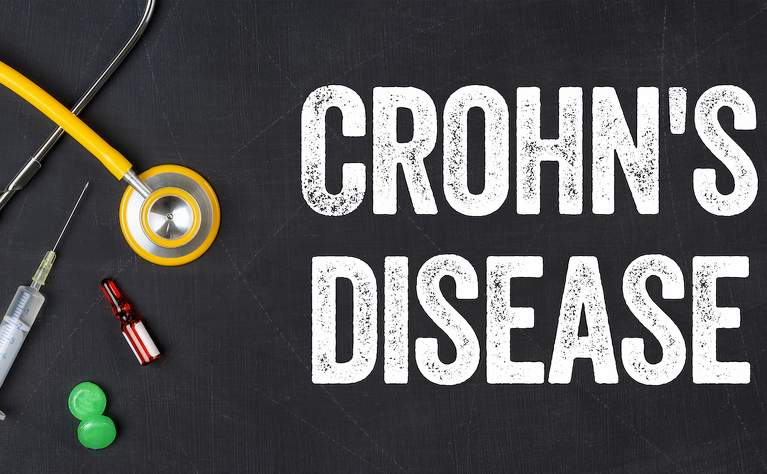Find this article useful?
Why not sign up to our mailing list and receive regular articles and tips about IBD to your inbox.
If you have just been diagnosed with Crohn’s disease you will probably have lots of questions and may feel a bit scared or confused.
This article aims to answer many of the questions you will have if you are newly diagnosed with Crohn’s disease and provide you with links to more articles where you can read in depth about the different subjects covered.

Go to part 1 of this article - Just been diagnosed with Crohn's disease
If the inflammation caused by Crohn’s disease is left untreated or not managed well by your treatment then some serious complications can occur. But following the treatment plan devised by your doctor and looking after your general health and wellbeing will help to reduce your risk of complications.
Some of the complications of Crohn’s disease include:
Your risk of developing complications depends on where in your digestive system your Crohn’s disease is and the severity of the inflammation. If you are concerned you should speak to your doctor about what risks and complications you could face. There is now a biomarker test available which can help to predict whether you can expect to experience 'mild' or 'severe' Crohn's disease, allowing doctors to target your treatment and hopefully control this inflammation better. The PredictSURE IBD test needs to be done when you are newly diagnosed with Crohn's disease and before you start any treatment.
It’s important that you tell your doctor of any new symptoms or areas of pain that you experience so that they can monitor you for complications and treat you as early as possible.

We don’t fully understand why someone gets Crohn’s disease. We do know that it’s not because of something they have done. It’s believed a few different factors combine to cause Crohn’s disease, rather than just one thing causing it.
These factors include:
Researchers are continuing to study what causes Crohn’s disease.
There are millions of people around the world who have Crohn’s disease. Some groups of people are more at risk of developing Crohn’s disease than others. It is more common in white people than black people or those of Asian origin. People from an eastern european Jewish background are most likely to be affected by Crohn’s disease. It is also more common in more northerly countries.
In the UK it's thought that anywhere between 300,000 - 500,000 people have inflammatory bowel diseases, such as Crohn's disease.
Some people you might have heard of who have Crohn’s disease are:
Dynamo (magician)
Anastacia (singer)
Ali Jawad (Paralymic athlete)
Lloyd Macey (singer)
Sam Faiers (reality TV star)
Pete Davidson (actor/comedian)
Amy Dowden (Strictly Come Dancing dancer)
Tom Speight (singer)
Mike McCready (Pearl Jam guitarist)
Crohn’s disease itself is not life-threatening, however it can cause some complications which may increase your risk of death slightly over the general population.
Things that can increase your risk of death with Crohn’s disease include complications following surgery, serious infections and colorectal cancer, but it’s important to remember that the risks of these are small.
New drugs are also constantly being licensed for use by Crohn’s disease patients, meaning there are far more options now than ever to help control your Crohn’s and prevent serious complications.

If you have just been diagnosed with Crohn’s disease it is completely normal to feel confused or overwhelmed by your diagnosis.
Talking to people about how you feel may help you to process your feelings, and learning as much as possible from credible sources of information will help you understand more about Crohn’s disease and what affects it may have on your life. There’s lots of information about Crohn’s disease on this (IBDrelief) website.
Some other places you may find useful information are:
You should also ask your doctor if your hospital has an IBD nurse that you can contact. These nurses specialise in supporting people with Crohn’s disease and they will be able to answer any questions you have and point you in the direction of local support groups if you would like to meet other people with Crohn’s disease. Many of the national charities in each country run local support groups and information events which are open to all patients.
Having Crohn’s disease can impact your mental health - this may be in the form of stress, anxiety, depression, self confidence or a number of other ways. If you feel you are struggling with your mental wellness in some way then you should talk to your doctor and they may be able to refer you to someone who can support you.
When you are newly diagnosed with Crohn’s disease you should make sure that you and your doctor have a care plan in place which sets out what treatment you will receive, when you will next see your doctor and what monitoring you will need. Don’t be afraid to ask your doctor about these things if they don’t bring them up.
Speaking to doctors and asking them questions can be daunting for anyone. If you are worried, or just feel overwhelmed when you are in the doctor’s office, then you may want to write down some questions or take someone you trust with you to help you get across your views.
Learning as much as you can about Crohn's disease will also help you to prepare for your future living with Crohn's disease and help you to understand more about the treatment you are receiving and have conversations with your doctor.
You might also want to tell your family and friends about your diagnosis of Crohn’s disease to help them support you as you adjust. It can be difficult to explain what Crohn’s disease is or how it affects you. If you are struggling to talk about it then you could give them this article to read through and invite them to ask you questions afterwards.
Don’t be afraid to let people know how they can support you. Many people will want to help you but may be unsure of how to do so.
Why not sign up to our mailing list and receive regular articles and tips about IBD to your inbox?